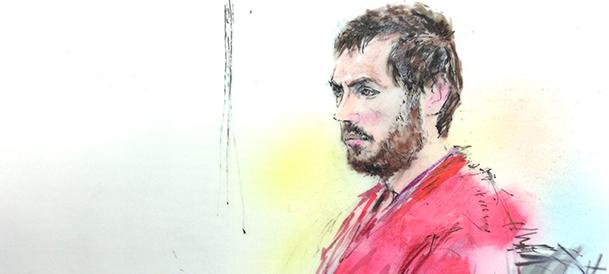Shooter to be Drugged for Interview
That was the headline in yesterday’s NPR feed that jerked my eyes back up, even as my fingers continued scrolling down.
In their attempt to decide how James Holmes, the man who shot moviegoers in Aurora, Colorado at the movie premiere of The Dark Knight Rises, ought to be tried, it seems prosecutors are getting impatient. While his defense team tries to figure out whether or not he should plead insanity, the prosecutors allege that they have “waited long enough.” The judge decreed that, should Holmes choose to plead not guilty by reason of insanity, he may well be forced to undergo an interview to determine his fitness to stand trial under the influence of “medically appropriate” drugs administered by the court.
Civil rights notwithstanding (I suspect the ACLU would have something to say about this course of action), what exactly is it that they are hoping to accomplish? Does anyone really believe that James Holmes could have entered a public place armed to the teeth with weapons and start shooting if he were “sane?” Does anyone do that?
He may have preplanned the assault (indeed, he had to in order to collect the weapons and ammunition and obtain the gas mask and bullet proof vest he wore during the attack). But does that mean he was sane when he did it? He may have thought about ways to exit the theater without getting caught, but does that necessarily mean he was in his “right mind?” I know that there is a narrow legal definition of insanity that we use in our court system and I realize that it hinges on premeditation and whether or not the actor fully comprehended the consequences of their actions. I know that, legally, someone has to know the difference between Right and Wrong. But aren’t we missing the point here?
Say Holmes is given a “truth serum” for his interview (something like sodium pentothol or sodium amytal which are designed to lower inhibitions and elicit more honest answers). If his mind is capable of confusing a violent act such as the one he committed with something that will ultimately make anyone’s life better, is him telling the “truth” about it going to clear things up? Or is it likely that what will emerge is simply a magnified version of Holmes himself, presumably muddled and angry?
And while the employees of the legal system run around trying to determine competence and legal definitions of insanity in some effort to dispense “justice,” what is really happening? The victims of the shooting are mourning – some of them mourning the loss of loved ones and others mourning the loss of their own physical health. Many are struggling to come to terms with the trauma they experienced and working to build lives where they feel safe and secure again. They are desperate to find ways to pay for the expensive medical care and rehabilitation they received as a result of Holmes’ attack, and whether or not he is found guilty, whether he is considered insane or not makes not one bit of tangible difference.
What if our limited resources were utilized to help everyone in this case in ways that will actually make their lives better? I can’t know what it will take to help any one of them in their own lives, but I bet they do. Working to come to terms with what has happened to them as well as finding ways to facilitate their physical and, in some cases, financial recovery would seem a much more humane, more just purpose than a prolonged series of trial motions and interviews and legal wrangling.
As I wrote in this post on restorative justice, I do believe that Holmes (and anyone who commits a crime) needs to be held accountable for his actions, experience consequences accordant with his acts. At this point, though, I question whether that is even possible. Wouldn’t it make more sense to acknowledge his suffering (I don’t care that I haven’t met him or read accounts of his ‘mental state,’ anyone who and mows down their fellow human beings with assault weapons is suffering) and work with him to increase his mental functioning? Not simply so that he can be tried, but so that he can have some shot at truly understanding his crime? Wouldn’t it be more satisfying to know that he could comprehend the effects of his shooting rampage and begin to atone for it? Wouldn’t it be more humane to give him a chance to spend his life doing something productive instead of leaving him trapped in a tormented brain and a prison cell for the rest of his life? And wouldn’t it be more humane and productive for us to direct some of those resources that might go into a trial toward the victims’ rebuilding of their own lives? Restorative justice. Restoration. Putting things back as best we can.
I don’t see how the continued debate over whether Holmes was “sane” or not is helping anyone to move forward or heal from the horrific events of last July. We can dissect this man’s likely thoughts or motives or brain patterns for months to come and still not achieve anything that resembles healing for this community. By the time a trial is concluded, if it can be, we will have only succeeded in keeping that wound open and raw for longer than it deserved to be. Our focus must be on assessing the needs of the entire community and addressing them, Holmes included.



